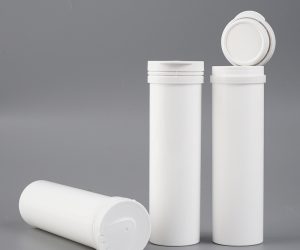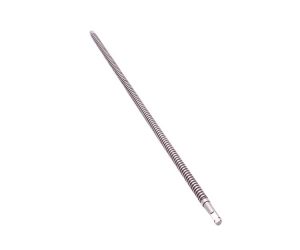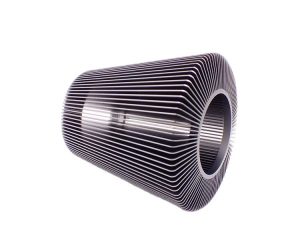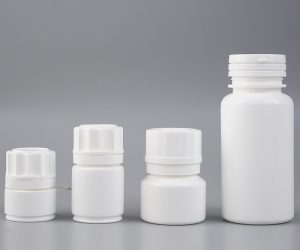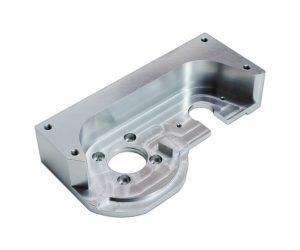Correct heat treatment is crucial for the success and longevity of plastic molds. Improper heat treatment processes can lead to various issues and failures in plastic molds, affecting their performance and durability. Some of the common problems that can arise due to improper heat treatment are:
- Insufficient Hardness: If the heat treatment process does not achieve the desired hardness, the mold may not be able to withstand the high stresses and pressures experienced during injection molding, leading to premature wear and failure.
- Uneven Hardness: Non-uniform heating or cooling during the heat treatment process can result in uneven hardness across the mold surface. This can lead to localized areas of wear and deformation, reducing the overall mold life.
- Excessive Hardness: Overheating or excessive quenching can cause the mold to become too hard, leading to brittleness and susceptibility to cracking or chipping under mechanical stress.
- Soft Spots: Improper heat treatment can create soft spots in the mold, where the material is not adequately hardened. These soft spots can wear quickly, leading to mold failure.
- Poor Dimensional Stability: Improper heat treatment can affect the dimensional stability of the mold, leading to distortion or warping during the injection molding process.
- Reduced Corrosion Resistance: Inadequate heat treatment can compromise the mold's corrosion resistance, making it susceptible to chemical attack or oxidation.
- Poor Wear Resistance: Insufficient heat treatment can result in low wear resistance, causing the mold surface to wear out quickly, especially in areas of high contact with plastic materials.
- Cracking and Deformation: Improper heat treatment can cause internal stresses in the mold, leading to cracking or deformation during use.
To avoid these issues, it is essential to follow proper heat treatment procedures for plastic molds, which typically include heating the mold to a specific temperature and then cooling it rapidly through quenching. The process is carefully controlled to achieve the desired hardness and microstructure.
Collaborating with experienced and reputable mold manufacturers or heat treatment facilities is crucial to ensure that plastic molds receive appropriate heat treatment. Regular inspections, quality control measures, and testing after heat treatment can also help detect any issues related to heat treatment early and prevent mold failures during the production process. Proper maintenance and upkeep of molds throughout their entire lifecycle are also key to extending their service life and preventing premature failure.
Imagine what a headache it would be if you suddenly encountered a mold malfunction during production! Therefore, choosing reliable partners is particularly important. They can not only provide professional technical support, but also ensure that every process meets the highest standards. In addition, regular quality inspections are like a physical examination of the mold, discovering problems in a timely manner can prevent them in advance.
Moreover, the daily maintenance of the mold cannot be ignored. Just like cars require regular maintenance, molds also need careful care. By proper cleaning and lubrication, the service life of the mold can be effectively extended and the risk of unexpected downtime can be reduced. Remember, prevention is always more effective than treatment.
Finally, I would like to emphasize that whether it is choosing partners or conducting daily maintenance, attention should be paid to details. For example, checking whether the temperature distribution of the mold is uniform or whether there are signs of wear. These small details may affect the efficiency and quality of the entire production process. So, let's work together to ensure that our molds are always in the best condition!
The failure of plastic mould is mainly caused by improper heat treatment process of mould, such as improper selection of heat treatment process parameters such as heating temperature, holding time and cooling speed. During the processing of plastic mold, cracks or deformation, surface oxidation and decarburization are mainly caused by mold failure.
First of all, it is about the influence of oxidation and decarburization, mainly because the mold quenching is stopped at high temperature, but can not be strictly controlled. In addition, after decarburization on the surface of the die, due to the difference in the internal and external structures, there is a large organizational stress during cooling, which leads to quenching cracks.
The second is about the rate of heating. As the die steel contains more carbon and alloy elements and has poor thermal conductivity, the heating speed should not be too fast and should be stopped slowly to avoid deformation and cracking of the die. When heating and quenching in air furnace, in order to avoid oxidation and decarburization, packing maintenance heating is adopted. At this time, the heating speed should not be too fast, and the heat transfer should also be slow.
The above will not produce large thermal stress, which is relatively safe. If the heating speed of the mold is fast and the heat transmission is fast, there will be great thermal stress inside and outside the mold. If the control is not good, such as deformation or crack, it is very easy to occur. In terms of prevention, preheating or slowing down the heating rate must be adopted.
Heat treatment is an important process in the manufacturing of plastic molds. Improper heat treatment can result in a variety of issues, including mold failure. In this article, we will discuss how improper heat treatment can cause failure of plastic molds and what steps can be taken to prevent this from happening.
Improper heat treatment can lead to a lack of hardness and toughness in the mold material. If the mold is not heat-treated properly, it may be too soft, which can lead to deformation, wear, and cracking during the molding process. On the other hand, if the mold is overheat-treated, it may become too brittle, leading to cracking or breaking during use.
One of the common issues related to improper heat treatment is thermal fatigue. Thermal fatigue occurs when the mold is repeatedly heated and cooled, causing it to expand and contract. If the mold material is not heat-treated properly, it may become too brittle and develop cracks under thermal stress.
Another issue that can result from improper heat treatment is uneven hardness. If the mold material is not heat-treated uniformly, it may have areas of different hardness, leading to inconsistent molding and premature wear.
To prevent failure of plastic molds due to improper heat treatment, it is essential to ensure that the heat treatment process is performed correctly. This involves carefully selecting the appropriate heat treatment method, temperature, and time based on the specific mold material and design. It is also important to perform proper pre- and post-heat treatment processes, including preheating and slow cooling to prevent thermal shock and ensure uniformity of the mold material.
In addition to proper heat treatment, other factors such as the use of high-quality materials, proper design, and regular maintenance can also help prevent mold failure. Regular inspection and repair of molds can identify and address any issues before they lead to failure, prolonging the lifespan of the mold and ensuring consistent and high-quality molded parts.
In conclusion, improper heat treatment is a common cause of failure in plastic molds. To prevent this, it is important to carefully select and perform the appropriate heat treatment process and ensure proper pre- and post-treatment processes. Regular maintenance and inspection of molds can also help prevent failure and prolong the lifespan of the mold.

